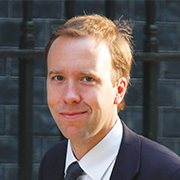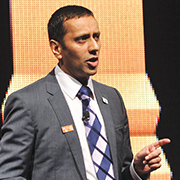News review – March 2019
NHS manager-bashing is a popular sport and several governments have considered tighter regulation. Yet given the opportunity to do so, they have largely kicked the can down the road. Similarly, in February the government accepted, in principle, only two of the seven recommendations of a review of the fit and proper persons test for senior NHS managers. The review, led by Tom Kark QC, said new competency standards should be created for directors on NHS boards and where training is needed it should be made available. This was accepted, together with a recommendation that the government should set up a national database of directors’ qualifications, previous employment and performance. However, the remaining five recommendations, including a proposal to establish a new organisation to suspend directors that have committed serious misconduct, will be considered as part of the workforce implementation plan that’s currently being developed.
A lot of the news focused on primary care. NHS England announced a five-year GP contract that aims to boost primary care services and establish primary care networks. The deal will see £1.8bn invested in creating the GP-led networks, which will bring a number of healthcare professionals together with family doctors to provide a range of services in primary care. Initially, the networks will hire community pharmacists and social prescribing workers, but in later years they aim to add paramedics, physiotherapists and physician associates.
A long-mooted state-backed insurance scheme for GPs was also launched following the announcement of the new general practice contract. NHS Resolution said the new GP indemnity scheme will open on 1 April and will be known as the Clinical Negligence Scheme for General Practice (CNSGP). The scheme is centrally funded, and NHS England said it will give GPs the same benefits as their hospital-based colleagues.
Following the announcement for GPs in England, Wales health minister Vaughan Gething gave the green light to establishing a state-backed clinical negligence scheme for local GPs. The scheme in Wales will be as closely aligned to English CNSGP as possible. The Welsh programme, to be known as the Future Liability Scheme, will be operated by NHS Shared Services Partnership from 1 April and will cover clinical negligence liabilities arising from the activities of all contractors providing primary care services, including GP staff, salaried GPs and practice nurses.
The indemnity schemes are seen as crucial, not only in attracting new GPs, but also to retain those already practising. In February, the Scottish government moved to address another issue that affects recruitment and retention. It announced that local GPs will be given extra support with the cost of running their practices. Health secretary Jeane Freeman said a further £20m will be invested, bringing the total sum to £50m over the next two years. The money will support the GP premises sustainability loan scheme, which aims to help recruitment and retention by easing the financial burden of owning a practice. The scheme allows GPs who own their premises to apply for long-term, interest-free loans worth up to 20% of the practice value.
The government is to change the law to make it easier to establish integrated care providers (ICPs). ICPs will enable primary medical services to be included in the same contract as other health and social care services. The ICP contract, which is due to be available from April, would be held by statutory providers, such as foundation trusts.
providers (ICPs). ICPs will enable primary medical services to be included in the same contract as other health and social care services. The ICP contract, which is due to be available from April, would be held by statutory providers, such as foundation trusts.
NHS screening programmes in England are not meeting standard targets and the proportion of eligible adults receiving screening is inconsistent, according to the National Audit Office. The NAO acknowledged the national bowel screening programme achieved coverage of 59.6% against a standard target of 60% in 2017/18. And all programmes except cervical screening met the lower threshold targets set by the Department of Health and Social Care. Currently, there are 11 national screening programmes in England, but the NAO focused on four that offer screening based on age, rather than a particular condition or pregnancy. The four programmes – abdominal aortic aneurysm, bowel cancer, breast cancer and cervical screening – examined 7.9 million people in 2017/18 and cost the NHS £423m.
NHS accident and emergency departments in England recorded their worst overall performance since the four-hour target was introduced in 2004. The latest figures from NHS England show A&Es continue to see more patients but are failing to meet the 95% four-hour target. In January, 1.78 million patients were admitted, transferred or discharged within four hours (84.4%), although attendances were 5.6% higher than 12 months ago. In January 2018, 1.7 million patients were seen within four hours. The 95% four-hour target was last achieved in July 2015. Delayed transfers of care were 10.8% lower in December 2018 than in December 2017. Most of the delays could be attributed to social care (47%), with 35% due to the NHS and 17% to both.
Integration between health and social care services must advance at a faster rate, according to the Scottish government and local authority body COSLA. A report assessing progress said some good practice had developed, both in the operation of integrated joint boards and how services are being planned and delivered to ensure better outcomes. It set out a number of proposals to bring forward further integration, including ensuring integrated finances and financial planning deliver maximum benefit for every pound spent; introducing more effective strategic improvement planning; and clear governance and accountability arrangements.
Also in Scotland, the government announced a £12m package of measures to transform maternity and neonatal services. A new neonatal care model will be tested at four sites to ensure babies needing more specialist care get the best possible support. There will also be other measures to help mothers and other family members.
QUOTES
‘For patients it should mean fewer trips to hospital and more care in the community, and allows health and care services to work together seamlessly with a greater focus on preventative, proactive and co-ordinated care.’
Reforms to help establish ICPs are crucial to the long-term plan, says health minister Stephen Hammond
‘Both the BMA and individual GPs have raised concerns with us about the financial risk of owning premises. So we have responded directly, and this scheme helps to “de-risk” general practice and reduce some of the up-front costs GPs can face when joining a practice.’
Scottish health secretary Jeane Freeman hopes a new premises scheme will make general practice more attractive ‘We must not become immune to the reality that behind today’s figures are stories of people with urgent medical needs waiting too long to be treated. NHS England’s review of performance targets must show how the NHS can get back to delivering the service that patients are entitled to expect and NHS staff want to deliver.’
‘We must not become immune to the reality that behind today’s figures are stories of people with urgent medical needs waiting too long to be treated. NHS England’s review of performance targets must show how the NHS can get back to delivering the service that patients are entitled to expect and NHS staff want to deliver.’
 ‘To improve leadership in the NHS we must fire fewer people and attract the best
‘To improve leadership in the NHS we must fire fewer people and attract the besttalent. NHS leaders have some of the toughest yet most rewarding jobs in the country. So let’s support them to do the job they need to do, and that will encourage more to step up.’
Health secretary Matt Hancock says NHS managers should be supported
From the hfma
The announcement in the NHS long-term plan that hospitals are to provide their own smoking cessation services is a step forward for public health, according to University Hospitals of Leicester NHS Trust consultant Sanjay Agrawal. In a blog on the HFMA  website, he says smokers see their GP over a third more often than non-smokers, while smoking is linked to nearly half a million hospital admissions a year. The HFMA made a major contribution to developing a tariff for treating tobacco dependency (see Stubbing it out, Healthcare Finance, December 2018) and he hopes prevention measures will have a lasting impact on patients, the NHS and society.
website, he says smokers see their GP over a third more often than non-smokers, while smoking is linked to nearly half a million hospital admissions a year. The HFMA made a major contribution to developing a tariff for treating tobacco dependency (see Stubbing it out, Healthcare Finance, December 2018) and he hopes prevention measures will have a lasting impact on patients, the NHS and society.
The HFMA policy team has produced guidance with its CIPFA counterparts on chief finance officers who work across the NHS and local government. Finance directors are performing this dual role in a small number of areas, says Emma Knowles, HFMA policy and research director. There is at least one example of a finance director covering both a clinical commissioning group and local authority. The guidance will be useful for those already in post to assess their development needs; those considering applying for a dual role post; and those thinking of appointing to a joint role, she adds.
In his latest blog tracing his role as chief financial officer of Bermuda Hospitals Board, Bill Shields says you don’t need cold weather to see NHS-style winter pressures. Mr Shields also looks at difficulties for insurance-based healthcare in places with small populations.
Related content
We are excited to bring you a fun packed Eastern Branch Conference in 2025 over three days.
This event is for those that will benefit from an overview of costing in the NHS or those new to costing and will cover why we cost and the processes.